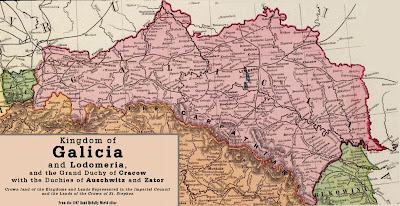Peter Hitchens on Lewis.
Steve Donoghue reviews Daniel Swift's Shakespeare’s Common Prayers: The Book of Common Prayer and the Elizabethan Age.
From John Stubbs' review of John Drury's new biography of George Herbert: 'By then Donne was the dean of St Paul's and was finding new self-definition in a venue that demanded preaching "loose as the wind, as large as store" to fill its vast Gothic chamber. Herbert's path, on the other hand, lay towards minimalism, the quietness of retreat.'
A book by Laura Mooneyham White: Jane Austen's Anglicanism (on Google Books). Reviewed here.
'Is there an Anglican culture? Anthony Trollope and the Barchester novels.'
From a review of Hermione Lee's Penelope Fitzgerald: a Life: 'The family included Quakers, Ulster Protestants, Wesleyan Methodists, Evangelicals, Anglicans, Anglo-Catholics and one famous Catholic priest, Mgr Ronald Knox. Fond of all (or most) of them, Fitzgerald decided that schisms were pointless and that all religions were really one, but also that faith was essential for life.'
An article on Rose Macaulay: '"Oh dear, if only the Reformation had happened differently": Anglicanism, the Reformation and Dame Rose Macaulay (1881-1958)', by Judith Maltby, appears in The Church and Literature. This volume also includes 'Jesuit Pulp fiction: The Serial Novels of Antonio Bresciani in La Civiltà Cattolica' by Oliver Logan.
I haven't yet read Macaulay's Towers of Trebizond but I've found these choice quotations from it online:
Then he stopped laughing, and said in the voice one uses when a friend has been killed by a shark, "You heard about poor Charles?"
I went on musing about why it was thought better and higher to love one's country than one's county, or town, or village, or house. Perhaps because it was larger. But then it would be still better to love one's continent, and best of all to love one's planet.
"Take my camel, dear,” said my Aunt Dot, as she climbed down from this animal on her return from High Mass. The camel, a white Arabian Dhalur (single hump) from the famous herd of the Ruola tribe, had been a parting present, its saddle-bags stuffed with low-carat gold and flashy orient gems, from a rich desert tycoon who owned a Levantine hotel near Palmyra… I did not care for the camel, nor the camel for me, but, as I was staying with aunt Dot, I did what she bade me, and dragged the camel by its bridal to the shed which it shared with my little Austin and, till lately, with my aunt’s Morris, but this car had been stolen from her by some Anglican bishop from outside the Athenaeum annexe while she was dining there one evening.
I wonder who else is rambling around Turkey this spring. Seventh-day Adventists, Billy Grahamites, writers, diggers, photographers, spies, us, and now the BBC.'Between 1991 and 1999 D.M. Greenwood produced a series of 9 ‘Ecclesiastical Whodunnits’ centred on the character of Deaconess Theodora Braithwaite. D.M. Greenwood is in fact Dr Diane M. Greenwood who, after teaching classics, took a position as what she described as a ‘low-level ecclesiastical civil servant’' in the Church of England.
Philip Hensher on the centenary of Barbara Pym's birth: 'She has her revenge: on her 100th birthday, all her books are in print, and every one is loved. We Pymmians toast her, even if we reflect as we raise our glasses, like Dulcie Mainwaring, that “there should have been wine… but she drank orange squash”.'
'Pym’s world is inhabited by an eccentric cast of winsome curates, pompous vicars and canons, enthusiastic students, vague professors, badly dressed clergy wives, aging men who live with their cranky mothers, bored civil servants, crotchety librarians, "splendid spinsters," dotty retirees, professed agnostics, titled nobility, "distressed gentlewomen" and discreet homosexual couples.'
Barbara Pym and the Sermon: 'If the sermons reported in the novels fail to satisfy her most reflective characters, a consideration of Barbara Pym’s own long-standing interest in John Henry Newman may offer insight into the kind of sermon that would have satisfied her and her creations.'
Rev. Richard Coles, formerly of the Communards. 'Former popstar, BBC presenter and parish priest Reverend Richard Coles talks to Caspar Melville about faith, doubt and dachsunds.' 'When he applied to train for the priesthood, the church’s medical officer asked if he had taken non-prescription drugs and, if so, which ones. ‘‘I only knew their street names, and he only knew their pharmacological ones. It was a very, very long phone call.’’'












